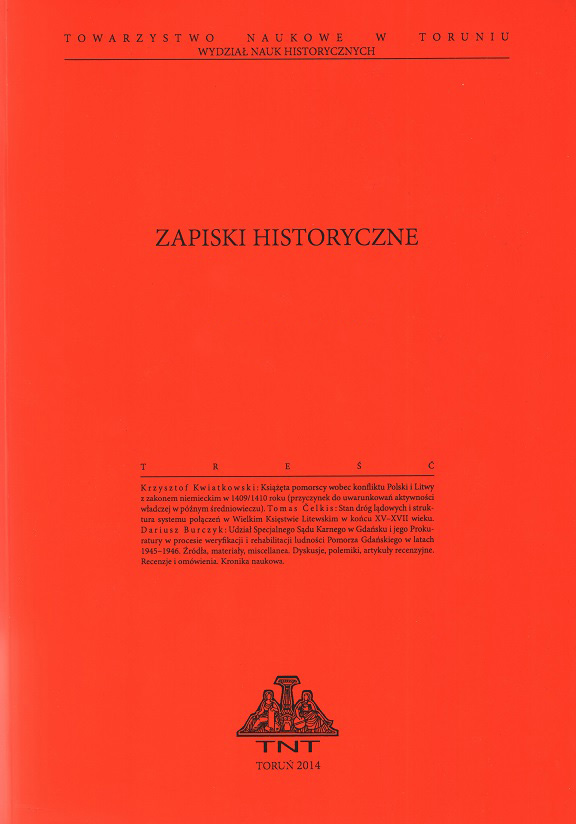Polityczne uwarunkowania powrotu Polski nad Bałtyk w latach 1918–1920 w podręcznikach do nauczania historii
Political Circumstances of Poland’s Return to the Baltic Sea in 1918–1920 in History Textbooks
The Case of Polish Textbooks for Secondary Schools of the Past Thirty Years
Author(s): Marek BiałokurSubject(s): Cultural history, History of ideas, Political history, Social history, School education, History of Education, Interwar Period (1920 - 1939), Transformation Period (1990 - 2010), Present Times (2010 - today), Historical revisionism, Post-Communist Transformation
Published by: Towarzystwo Naukowe w Toruniu
Keywords: Second Polish Republic; Pomerania; Paris Peace Conference; Poland’s Wedding to the Sea; Józef Haller; history education; school textbooks
Summary/Abstract: The year 2020 saw the centenary of the return of Pomerania to Poland, which regained access to the Baltic Sea. This event, along with many other issues connected with the establishment of the Polish state after the First World War, has been the subject of historians’ research for years. This also applies to history educators who analyse the contents of school textbooks. The author of this article, which is consistent with this research trend, decided to analyse dozens of the most popular textbooks for teaching history in secondary schools used by Polish pupils over the past 30 years, i.e. in the period from 1990 to 2020. The article primarily uses the philological and comparative methods. The undertaken analysis helped to distinguish from the school textbooks three main threads concerning Poland’s return to the Baltic Sea, namely the speech by the President of the United States Thomas Woodrow Wilson of 8 January 1918, the resolutions of the Paris Peace Conference of 1919 and Poland’s Wedding to the Sea of February 1920. As a result, it has been shown that these issues have an adequate place in textbooks, as far as it was required by curricula for teaching history in the 1990s, as well as the later reformed curricula created during the first two decades of the present century. This results from the fact that practically all analysed textbooks provide basic facts concerning the circumstances of the retaking of part of Pomerania by the Republic of Poland after the end of the First World War, which are presented with a short commentary and sometimes with additional content for learning, and with particular consideration of international conditions of this process. What should be noted in the analysed textbooks is that they are free of ideological influences, which had been visible in Polish history textbooks before 1990.
Journal: Zapiski Historyczne
- Issue Year: 86/2021
- Issue No: 2
- Page Range: 33-56
- Page Count: 24
- Language: Polish

